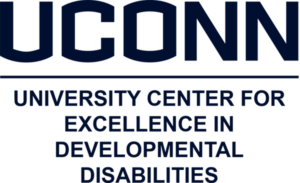Career Prep Tip: Specialized Programming for Neurodiverse Students

By Ashley Mowreader for Inside Higher Ed
As the number of college students with disabilities grows, more institutions are investing in individualized programs and initiatives to support their career development and workforce readiness.
Around one in five undergraduates reports having a disability, according to the National Center for Education Statistics’ most recent data. However, career outcomes and job placement data for these students can be more difficult to find compared to those for their peers without disabilities.
The unemployment rate in 2022 was twice as high for adults with a disability (8.2 percent) compared to those without a disability (3.5 percent), according to the U.S. Department of Labor’s Bureau of Labor Statistics. Disabled adults are also more likely to be categorized as not in the labor force (62 percent for those with a disability compared to 22 percent of those without).
Colleges and universities have been expanding their services to help students achieve their career goals after college through specialized coaching, workshops and boot camps. Here are four examples of different programs that support students with disabilities as they prepare to enter the workforce.
- University of Illinois at Urbana-Champaign—DRES Career Services
The University of Illinois’s Disability Resource and Educational Services (DRES) offers career services including advising, employer connection, resources and workshops to help students with disabilities identify their next steps after college.
Career advisers can help students explore their values, skills, personality and interest and how they align with future goals and support them through applying for internships, graduate school, part- or full-time work, or another plan for life after graduation, according to the office’s website.
Employers can coordinate with DRES to recruit diverse talent, host workshops or give presentations. The office also provides a list of organizations that are disability-friendly and other tools for students looking to find an inclusive space after graduation.
- Rowan University—PATH
Autistic students at Rowan University can participate in the Autism Preparation and Achievement in the Transition to Hire (PATH) program to equip them for the transition to meaningful employment. PATH has three primary elements: career readiness, social engagement and resource networks to help combat underemployment and unemployment for those on the autism spectrum.
The program is free and available to students who identify as neurodivergent to select the supports they may need from the program, including individual coaching, career workshops or parent workshops. Prospective participants are encouraged to attend an information session before registering for the academic year.
PATH staff also create a regular newsletter for students to be aware of upcoming deadlines, events and new job opportunities that they may be suited for.
- Rochester Institute of Technology—Neurodiverse Hiring Initiative
RIT’s Spectrum Support Program launched the Neurodiverse Hiring Initiative in 2018 in collaboration with the career services office and Cooperative Education to improve graduation and employment outcomes for neurodiverse students.
A Career Ready Bootcamp designed for autistic job seekers helps these students practice and refine human skills for workforce success after graduation, working collaboratively with their peers and delivering a final product to a client. The boot camp connects students directly with an employer as well as provides career services like résumé review, mock interviews, disclosures and recruiter connections.
The summer 2023 boot camp hosted 30 students, Kendra Evans, RIT Spectrum Support director, told Inside Higher Ed.
The initiative also connects employers to students through networking events, résumé books, direct referrals and internship experiences. Employers get support on best practices and training resources to ensure the experience is beneficial for the student and the host.
- University of Connecticut—Center for Neurodiversity and Employment Innovation
The University of Connecticut has a center dedicated to improving employment outcomes for neurodivergent adults and placing them with inclusive companies that support students with disabilities, the Center for Neurodiversity and Employment Innovation. The center partners with 60 other institutions in the University Council for Neurodiversity Employment, working to build a talent pipeline for students and employers and making recruiting more inclusive across industries.
The University Council for Neurodiversity Employment created a Neuro-Inclusive Candidate Network to connect neurodiverse students and recent alumni with employers who value their experiences and strengths. The center also provides one-on-one coaching for students.
If your student success program has a unique feature or twist, we’d like to know about it. Click here to submit.

